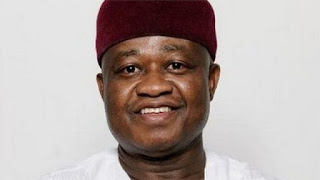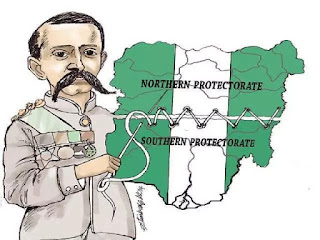BUDGET: AN ANNUAL RITUAL OF THE RULING ELITES
The
High priest is escorted down the Isle by stern looking men as he made his way
across the sacred shrine towards the sacrificial altar. On the podium he paused
and surveyed the chosen apostles in attendance representing every coordinate
across the 360 degree swathe of the holy land. Excitement hung over the rotunda
as all eyes riveted on the high priest in palpable expectation. The high priest
in his late seventies looked down at the scripture in his hand, cleared his
throat and begin to read the sharing formula verses out of the booty chapter,
which has been an annual ritual drawing the blood of the sacrificial lamb to
sprinkle and bathe the distinguished priests of this hallowed congress:
Invoking strength and immunity for the next twelve moons.
You
might easily think the above is culled from an ancient literature or scene from
a historical Hollywood movie, right? Far from it.
The
above scene is actually saritization of 2021 budget presentation by President
Muhammadu Buhari to the joint session of our national assembly. A worn out
ritual bequeathed to us by the present 4th Republic since 1999 that is
increasingly becoming monotonous without meaningful impact to either society or
economy.
Today
as a country, our biggest setback is being a divided nation along the label of
either/or, with regard to all our socio-political existentialities. Most of us
consciously and subconsciously divided ourselves as Hailers and Wailers, thus
killing off any chance of a hybrid label of hailer/wailer. For a nation to
succeed, majority of its citizens must be hailer/wailers so that they may
applaud the good policies and stand against the bad ones. Every government
needs sincere and constructive criticism laced with credible analysis, if it is
to function successfully. For my analysis on our budgetary system, I hope for
once, rather i beg please, that we will discard the hailer or wailer label and
dorn the hailer/wailer garb in scrutinising the argument objectively.
In
the 2021 budget the Federal Government proposes the sum of 13.08 Trillion Naira
(the highest so far in our history) despite the slowdown in economic activities
due to corona pandemic. Out of this hefty sum the first glaring
irresponsibility of the budget is contravening the 2007 Fiscal responsibility act
by allowing a deficit of 5.21 Trillion Naira which clearly went above the
threshold of 3% pegged by the act. At $447 billion dollars GDP in 2019 the
current deficit amounts to over 3.5% and it is almost certain that the
projected GDP in 2020 will fall sharply, due to the pandemic, thus the deficit
will even be higher than projected.
The
biggest lump of the budget goes under recurrent expenditure which will gulp
5.65 Trillion Naira, amounting to 43% of the budget to cater for the running of
the three tiers of government: civil servants, political office holders, the
over 40 MDA's with their over 400 hundred parastatals, nonetheless an
insignificant percentage out of the over 200 million Nigerians.
When
Sunusi Lamido cries foul way back in 2012 about the unsustainability of our
recurrent expenditure vis a vis national development, he was almost crucified.
Around that time too, the Professor Anya. O. Anya committee report, also
pointed out that the federal bureaucracy is unsustainable. A report released by
the Federal Ministry of Finance then, shows that of the 16.44 Trillion Naira
disbursed from the federation account, over a period of 8 years, 5.2 Trillion
(32%) was spent on just 17,474 people in government (mere 0.0001%) out of the
180 million Nigerians at that time.
The
worst fraud under the recurrent expenditure is what was termed capital
recurrent expenditure. For example in 2010, budget provision approved 1.19
million for the purchase of canteen and kitchen equipment in the villa and the
same item was approved in the following year's budget at 489 million. I believe
we couldn't forget how Aso Rock clinic, after having gulped 11 billion, yet the
First lady claimed there were no syringes and the X-ray machine wasn't
functioning. It is also fresh in our memories during the NDDC corruption saga
when the threat of exposing conniving legislators, resulted in suspending
indefinitely the hearings and an officer of the NDDC claims on national TV that
a contract could be awarded twenty times, monies collected but never to be
executed.
Obasanjo
tried to implement the monetization policy way back in 2004 which operates for
only two years, before Babagana Kingibe, the SGF under Yar'Adua, reversed the
policy which could have seriously reduced the recurrent expenditure through
stoppage of provision of vehicles for 996,744 civil servants, 1,448 political
office holders, 469 Federal legislators and 1,152 Judicial officers, among
others.
When
Buhari came to power we jumped and danced in joy full of expectations that nigh
comes our savior. The first signal that further strengthened that belief was
the implementation of TSA which the previous administration concieved but
failed to implement. Buhari's first budget, in 2016, wasn't much different from
previous ones though that was excusable considering he just came on board. The
2016 budget as usual credited 65% towards financing the extravagant lifestyle
of those in governance (recurrent expenditure 43%) and of their foreign masters
(in debt servicing 22%). Out of the remaining balance, capital expenditure,
which also mainly serves elites interest in contracts of projects between
contractors and government oficials gulped 29%. Virtually the larger society
benefitted next to nothing as many of the projects under capital expenditure
were not executed either under the same budget or entirely. Capital projects
that are likely to see the end of the day are usually like the ones i gave
example above (Aso Clinic etc) which naturally found their way into the pockets
of contractors and government officials.
The
following year in 2017 our hope risen as the new budget saw decrease of 3% in
recurrent expenditure and sharp increase of capital expenditure to 31% in a
budget of 7.29 Trillion. Our Lords share in that budget dropped from the previous
65% in 2016 to 62%. That is very encouraging, right?
Despite
the economic downturn due to oil price plummeting, Nigerians are resolute in
their hope for the future and the Buhari government cemented that resilience
with the 2018 budget of 9.12 Trillion and despite the padding brouhaha and
hostile relationship between the legislature and the executive, the budget,
after long delays was passed, though surprisingly the percentage of recurrent
expenditure and debt servicing combined, surged up once again to 64% of the
total budget.
2019
was no different as that year's budget saw a significant rise in recurrent
expenditure and debt servicing, becoming the highest since the inception of the
administration at 69%.
The
biggest surprise came in the 10.3 Trillion Naira 2020 budget with a whopping
73% dedicated to our Lords within and without. Unfortunately the outbreak of
Corona pandemic came knocking but guess what? The government reviewed the
budget. One would expect a downwards review due to the lockdown, glut in the
oil market and disruption of distribution chain. But no, it was reviewed upward
to 10.8 Trillion in the middle of a pandemic.
In
the last five years of this government's budgetary allocations, the sum of
44.07 Trillion Naira was budgeted and out of that amount 71% of it goes the
usual way of recurrent expenditure (18.07 Trillion) and debt servicing (that
would gulp 13.5 Trillion) making a total of 31.5 Trillion. Out of the 44.07
Trillion budgeted only 12.5 Trillion is set aside for capital expenditure. Can
anyone point us infrastructures across the country commensurate to half of that
figure?
This
government resurrected one of the most important infrastructural project ever
envisioned in this country which had been in limbo for 40 years, the Mambila Hydro
power plant. This project could change lots of narratives in this country and
it was signed in 2017. The lifespan according to the contract is 6 years. It
was one of the cheapest project considering Nigeria will only provide 850
million dollars out of the 5.7 billion dollars the Chinese are bringing as long
term loan into the project. Since 2018 this project consistently appear in this
country's budget, including the recent 2021 budget but it has not taken off yet
and this administration has 3 years left. My question is, is mere 300 billion
(a little over 1%) out of the last three year's budget of 28 Trillion too
difficult to be committed in favour of such meaningful project?
The
most worrying issue, beside budgeting mispriority, is our rising debt profile
which in the first quarter of this year reached 33 Trillion (87 billion
dollars) under this administration from 2015. Does the reality on the ground in
our quality of life, infrastructural development and income disparity correlate
with such amount? There is nothing wrong in taking loans to fund budgets (every
country does) but we took loans year in year out but the reality on the ground
doesnt reflect the humongous amount. Look at Lagos-Ibadan rail, which has been
on going through four budgets, Abuja-Kano highway is entering it's third
budget, Mambila it's fourth, 2nd Niger bridge it's fourth, so are Baro, AKK
pipeline etc. None of these projects lifespan exceed 6 years in their
contracts. What is happening?
The
rising debt portfolio has an adverse effect on our economy as the domestic debt
keeps our lending rates (personal, corporate and mortgages) perpetually on
double digits which slows economic growth and the foreign debt will also
continue to exert perpetual pressure on our currency to remain weak against
major currencies and hovers on devaluation. Yet we still believe things are
working for the better in this country?
Despite
all these extravagance, mispriority and nonchalance to real development,
government is imposing taxes left, right and center on ordinary Nigerians at a
time when others are cancelling taxes and doling palliatives to support
businesses. Hypocritically, the more severe this government austere measures
deepens the impoverishment of the masses as borders are closed without commensurate
agricultural policies, fuel and energy hike (back to back) leading to more job
losses as farmers in agricultural hubs of the country are too insecure to farm,
yet our ruling elites are becoming more ostentatious as they increased
budgetary provisions for themselves without any effort whatsoever in curbing
their extravagance and indulgence. They allocated 582 million for food and
refreshments alone in the presidency (though at least the 72 billion budget of
the presidency is more transparent than the opaque 128 billion of the National
Assembly).
No
country ever succeeds without equitable distribution of wealth, as that is what
unleashed the potentials of its youth and it's small scale industries which are
the engine of economic growth. Education is usually the number one priority of
committed governments but here government operates as if it is the enemy by
starving it of funding.
My dear reader
everything is wrong with our policies and economy, our budgeting system is a
sham and fraud across federal, state and local governments and it didn't start
with PDP though they exacerbated it, as is obvious APC is continuing the
legacy. If we are going to budget half of what we used to and judiciously
channeled it towards the majority of Nigerians, not the exclusive 5% of our
elites, we will definitely see positive changes in few short years (what we
expected this government to have done in these 5 years). Make no mistake, our
dream will continue to be an illusion unless we decide to discard the hailer
and wailer mentality and embraced the hailer/wailer hybrid for our common good.
We must realize that budget in Nigeria is no more than a ritual that sacrifices
common man's interest and accentuates the raping culture foisted on us in the
name of democracy by election of the elites, by the elites and for the elites.




Comments
Post a Comment